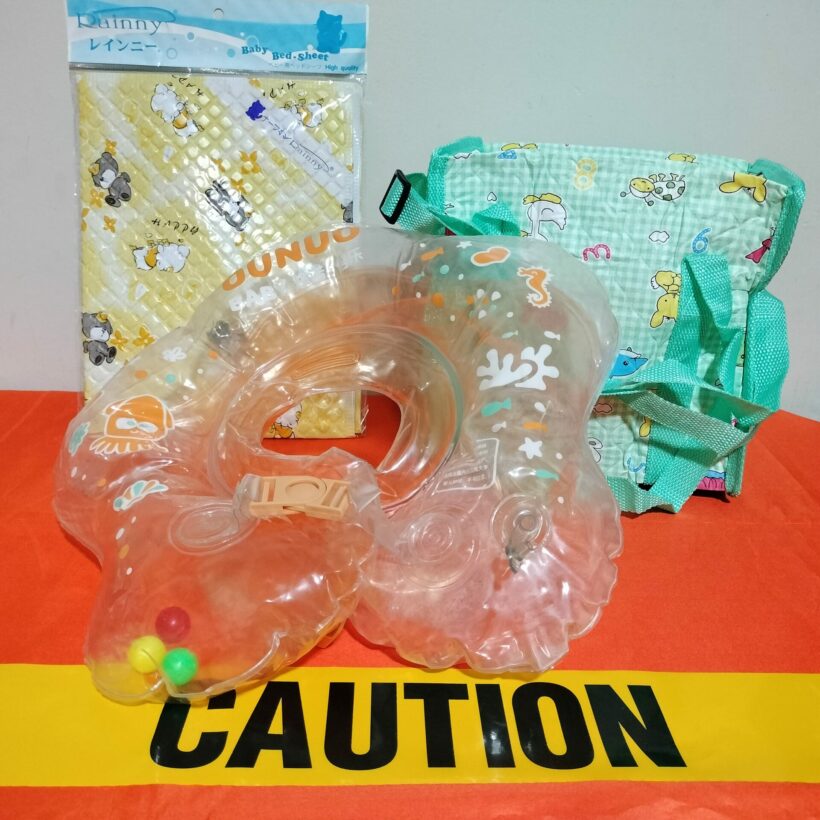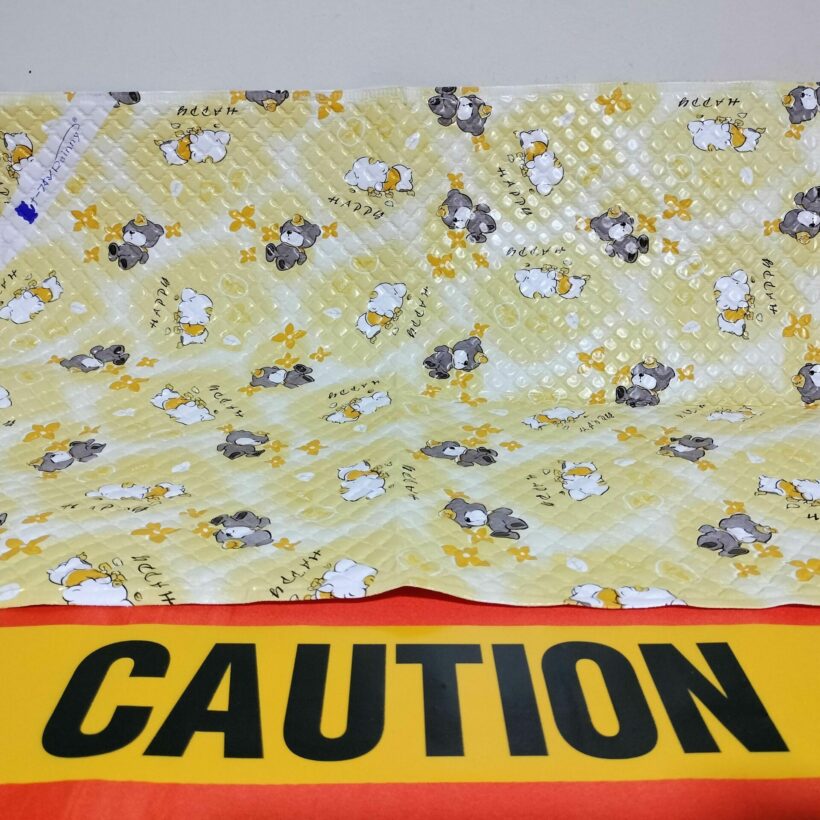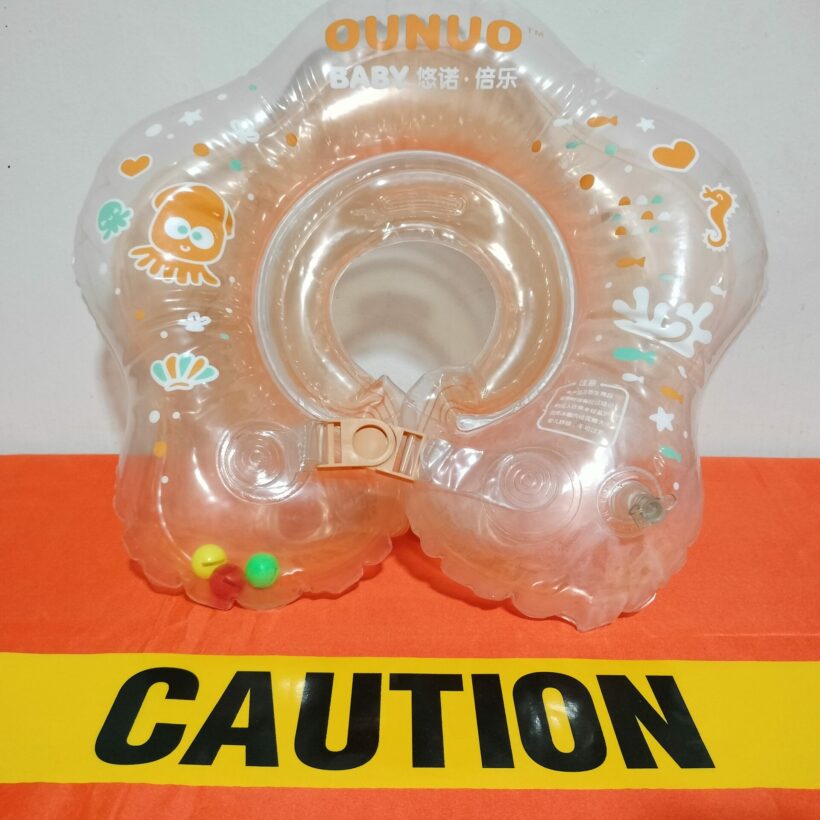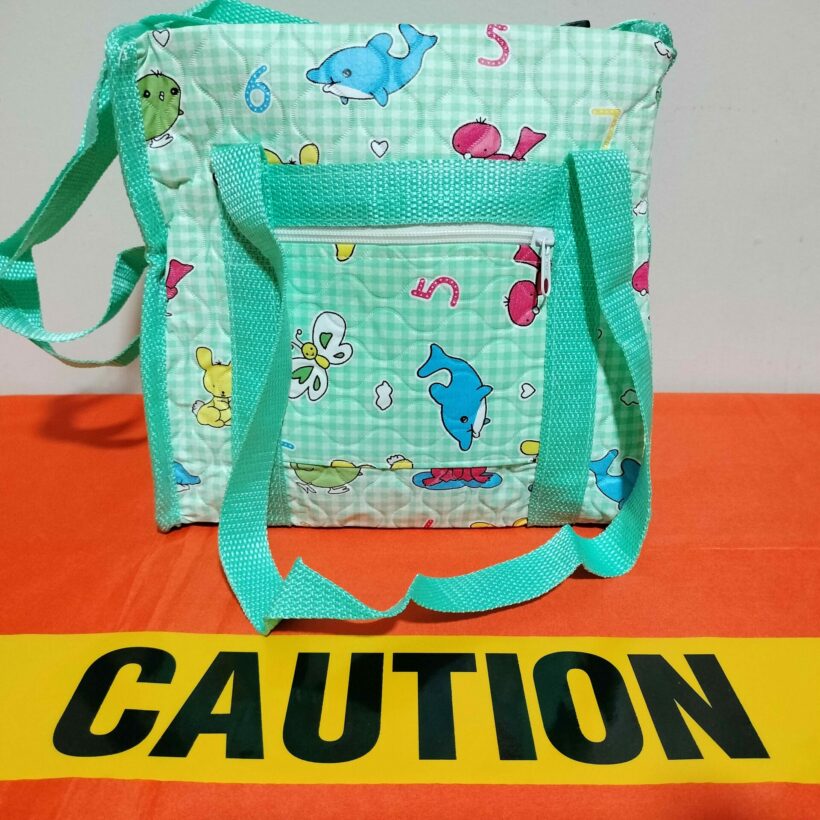18 December 2024, Quezon City. The toxics watchdog group EcoWaste Coalition cautioned consumers against the purchase and use of three baby-related products (a baby bed sheet, a baby swimming float, and a baby supplies bag), which are laden with phthalates way above the legal limit set for such chemical compounds in toys and childcare articles.
Pronounced as THAL-ates, these industrial chemicals are used to soften polyvinyl chloride (PVC) plastic. Found in a variety of consumer, household, and medical products, phthalates are known to imitate, alter, or block natural hormone functions and cause adverse health impacts. These endocrine-disrupting chemicals or EDCs can be transferred from mother to baby during pregnancy, threatening the health of succeeding generations.

Laboratory tests commissioned by the EcoWaste Coalition have confirmed the presence of toxic phthalates above legal limits in these baby care articles.
According to numerous studies in animals and people, phthalate exposure can lead to a wide range of health problems from allergies, asthma, cardiovascular diseases to cancers. Studies have also linked phthalates to neurodevelopmental disorders such as attention deficits, learning difficulties, and intellectual disability, and reproductive health disorders such as genital abnormalities and undescended testicles for baby boys and reduced sperm counts and testosterone levels in adult males.
For its latest sampling exercise, the group purchased baby-related products from retailers in Binondo, Manila and had them analyzed for phthalates by SGS, a leading global testing company. Laboratory tests found the samples with di-(2 ethylhexyl) phthalate (DEHP) and diisononyl phthalate (DINP) at levels exceeding the 0.1 percent limit, which is equivalent to 1,000 parts per million (ppm).

This baby bed sheet tested with 4,640 ppm of DINP and 107,000 ppm of DEHP, which are banned in toys and childcare articles above 1,000 ppm.
— A plastic baby bed sheet bought for P100 was found to contain 4,640 ppm of DINP and 107,000 ppm of DEHP.

This baby swimming float contains 14,500 ppm of DINP and 216,000 ppm of DEHP, way above the 1,000 ppm limit for phthalates in toys and childcare articles.
— A plastic baby swimming float costing P100 contained 14,500 ppm of DINP and 216,000 ppm of DEHP.

This baby supplies bag is laden with 167,000 ppm of cancer-causing DEHP.
— A plastic baby supplies bag worth P200 contained 167,000 ppm of DEHP.
This is not the first time that laboratory tests confirmed the presence of violative levels of phthalates in PVC plastic products purchased by the EcoWaste Coalition from offline and online dealers, including plastic erasers, plastic school bags, plastic toys, and plastic baby-related products such as a bib, diaper changing mat, reusable panty, and inflatable chair.
To protect the current and future generations from the adverse impacts of phthalate exposure, the EcoWaste Coalition urged consumers to:
— Stay away from products made of PVC plastic, vinyl or plastic marked #3.
— Avoid plastic products with a strong chemical smell.
— Refrain from buying soft and squeaky plastic toys unless certified phthalate-free.
— Look for reliable phthalate-free marks on the product label.
— Buy duly authorized and labeled products from legitimate sources.
The group further called on manufacturers, importers, distributors and retailers of juvenile products to only offer duly tested and labeled goods such as those designed to facilitate the feeding, relaxation or sleep of children, which are safe from hazardous chemicals like EDCs.
The group has already reported its latest findings to the Food and Drug Administration (FDA).
References:
https://www.endocrine.org/topics/edc/introduction-to-edcs
https://www.fda.gov.ph/wp-content/uploads/2021/05/Administrative-Order-No.-2009-0005-A.pdf
